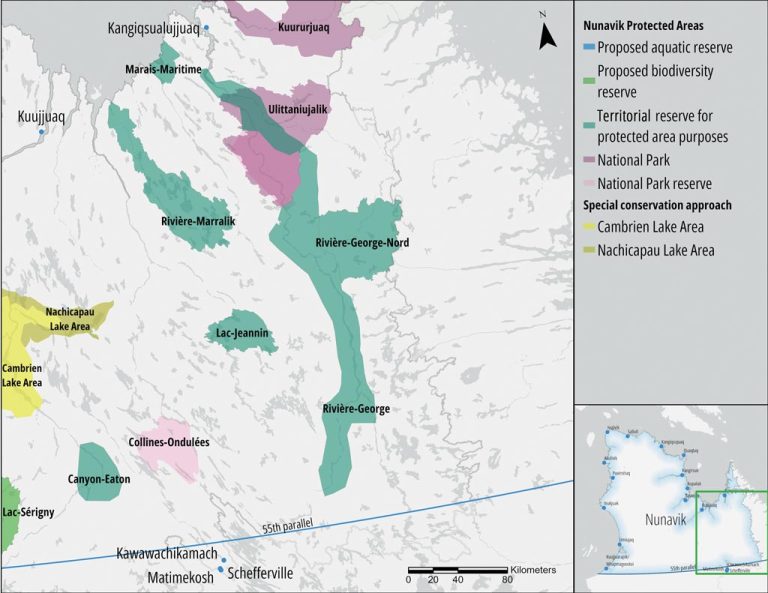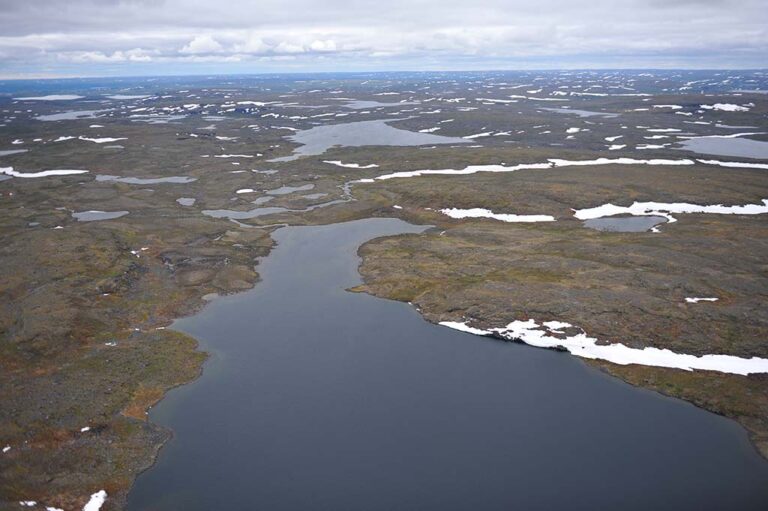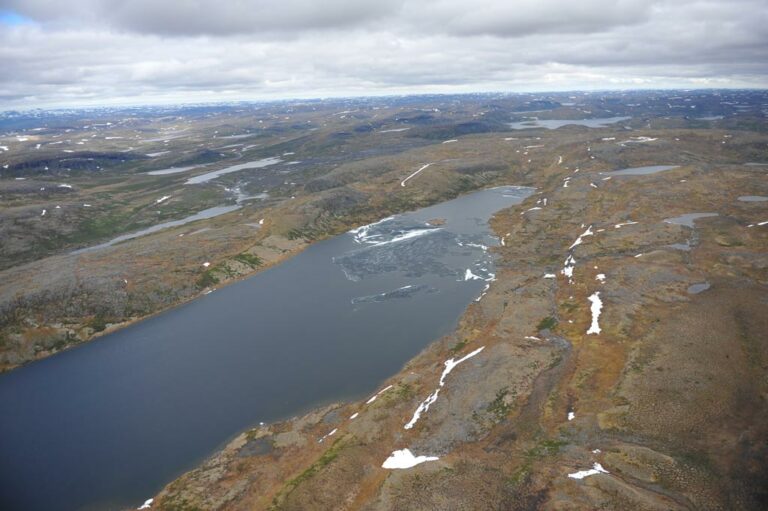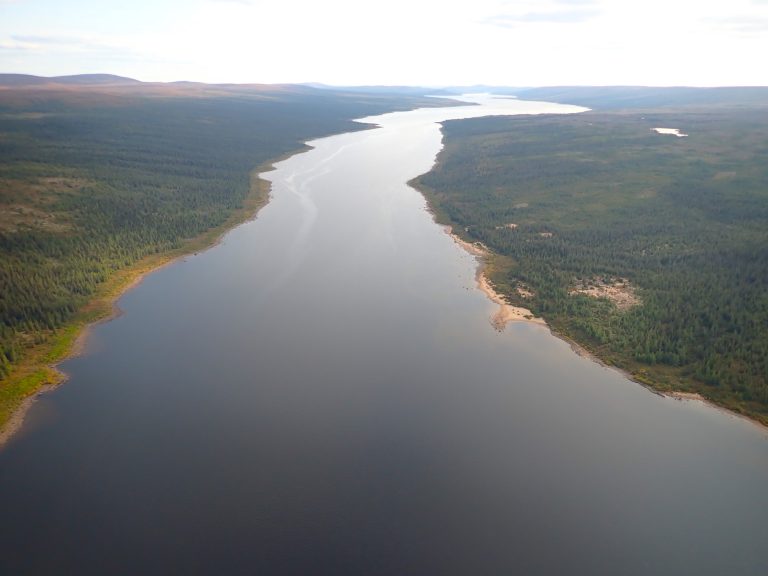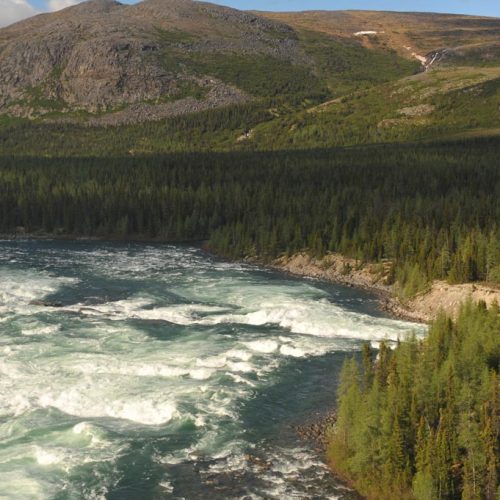Home » Protected areas » Rivière-George
Rivière-George
TERRITORIAL RESERVE FOR PROTECTED AREA PURPOSES
The Rivière-George territorial reserve for protected area purposes (Réserve de territoire aux fins d’aire protégée de la Rivière-George) and its expanded area protect the George River and its watershed as well as a portion of the calving grounds of the George River caribou herd. This reserve is a north-south corridor where a transition is apparent between the spruce-lichen stand and the forest and shrub tundra bioclimatic domains, found especially on the tablelands on either side of the river in the northern portion of the territory.
The territorial reserve was originally designated in 2008. The changes made in 2020 were mainly to incorporate territories that were previously subject to mining claims. The goal is also to ensure that the network of protected areas around Parc national Ulittaniujalik is well connected.
Characteristics
Land Category – JBNQA and NEQA
Category III
Main conservation objectives
To protect a portion of the calving grounds of the George River caribou herd and the George River watershed. Also aims to protect an essential subsistence area for Inuit and the Naskapis.
Geological province
Sub-province of the Core Zone (Churchill Province)
Natural regions
De Pas Hills, Rivière à la Baleine Lowlands, Mistastin Hills, Upper George Plateau, Lower George Plateau
Bioclimatic domains
Transition from the spruce-lichen bioclimatic domain to the forest and shrub tundra domain
Wildlife
George River migratory caribou herd
Hydrology
George River
Archaeological sites
86 sites listed in the inventory of archeological sites of Quebec (Inventaire des sites archéologiques du Québec (ISAQ)). Includes the Mushuau-nipi site, which is highly significant to the Indigenous Nations of northern Quebec and Labrador.

